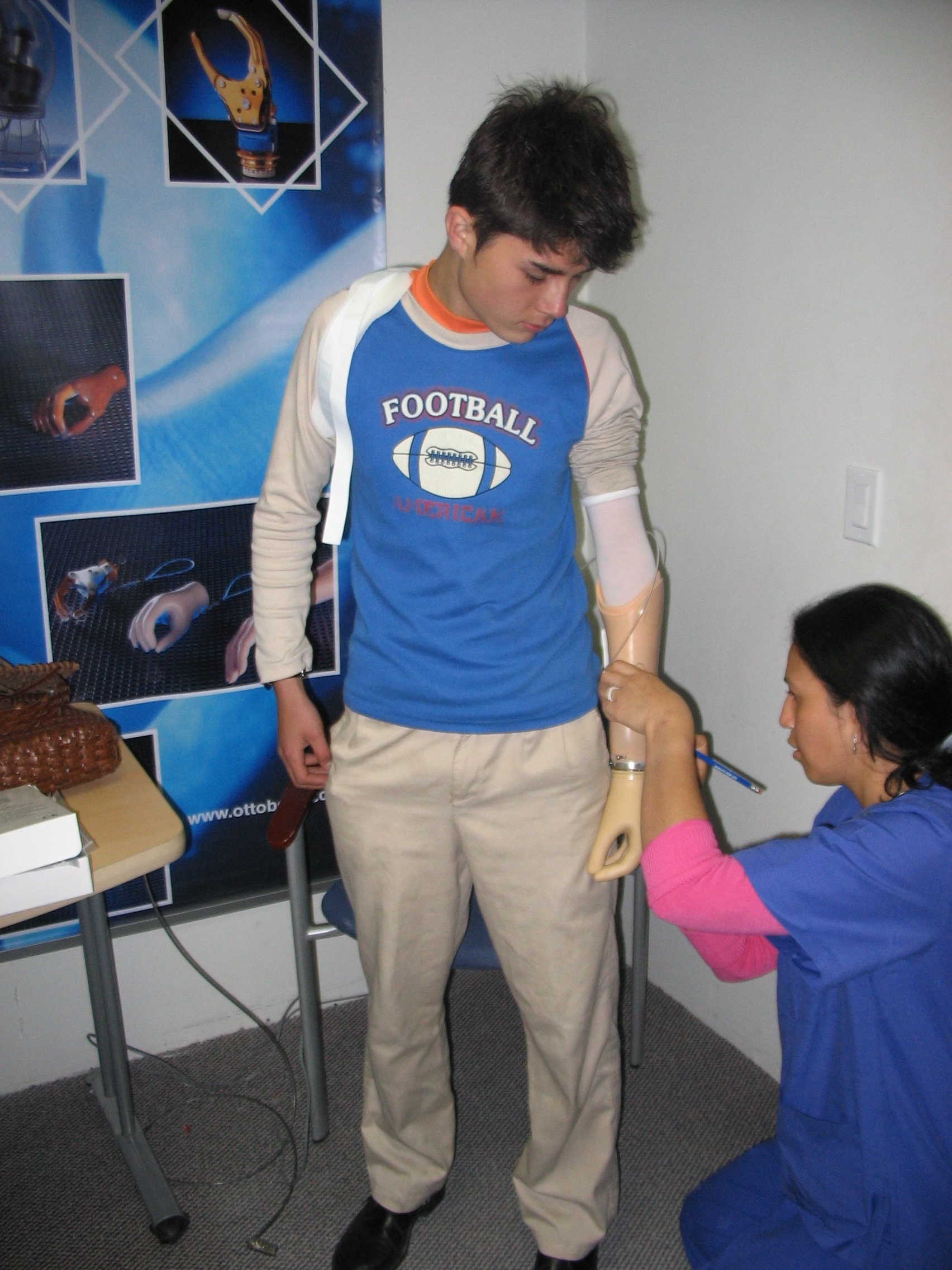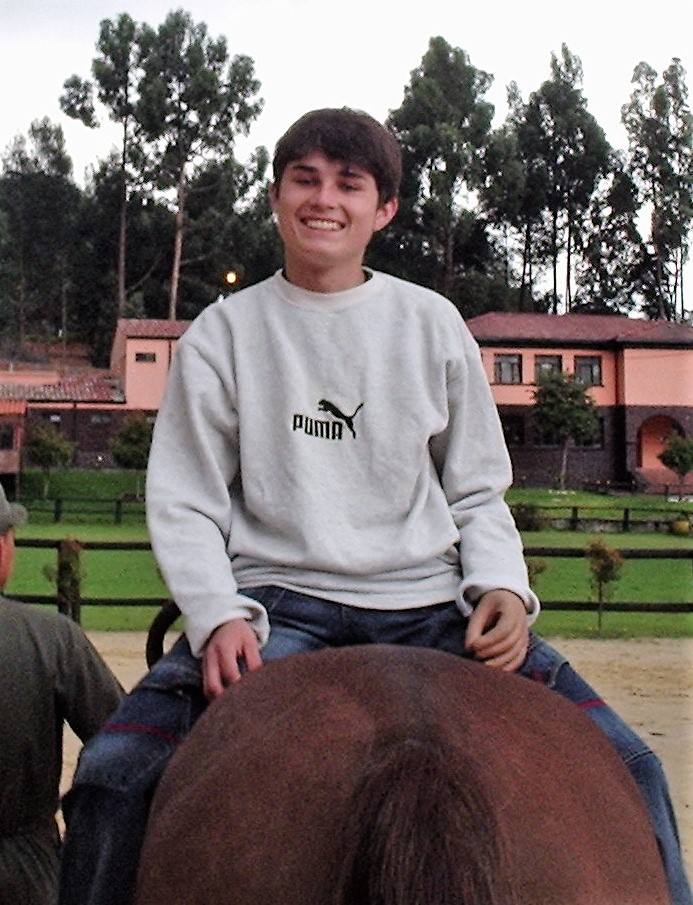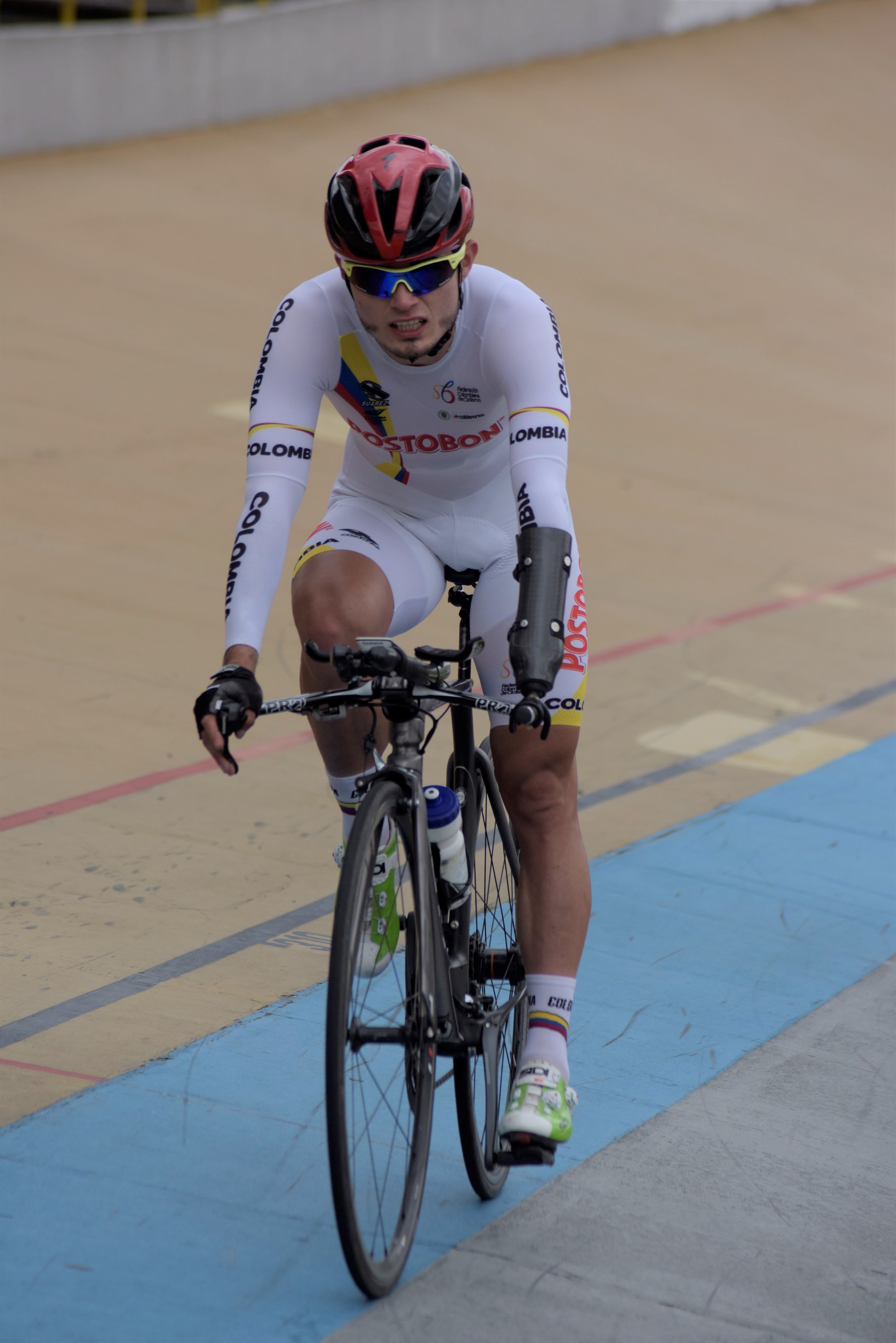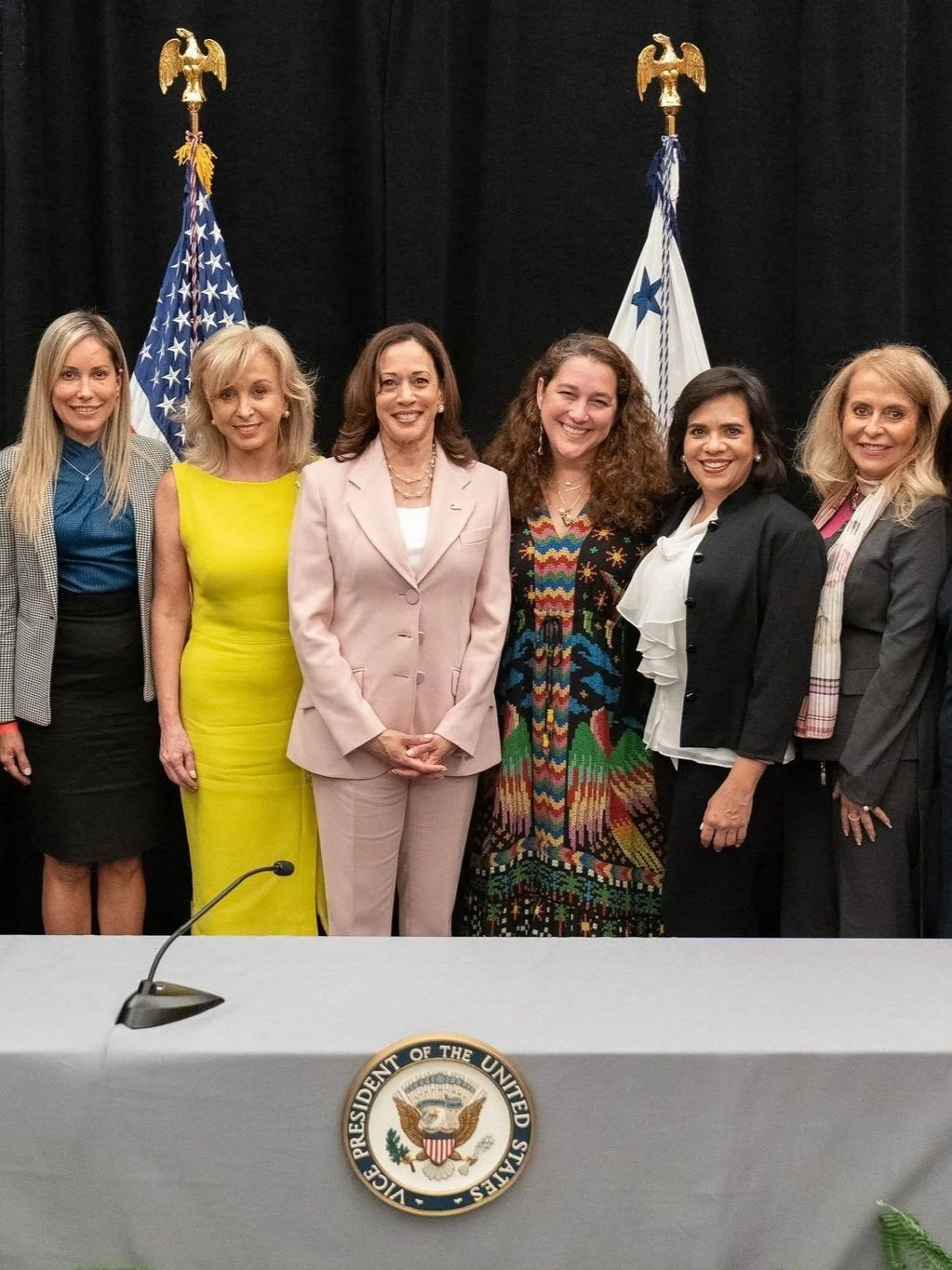Gabriela Febres-Cordero with Lina Fernanda Angulo Congo, who lost her leg due to a stray bullet that reached her crib during a fight between the FARC and the military when she was just four months old.
In 2002, Washington D.C.-based Venezuelan diplomat Gabriela Febres-Cordero met a young Colombian man, Argemiro Cuellar, who was to change her life. In hospital, he had suffered severe burns to his face and body due to an improvised landmine explosive device, but had survived an induced coma while doctors fought to keep him alive. But she was shocked to learn that after his lucky recovery, Argemiro had lost his motivation to live after he saw his scars in a mirror. It led Gabriela to realize that after surviving a landmine accident, an occurrence that is still sadly fairly common in Colombia, there are no resources to deal with the terrifying aftermath that the survivors are left to try and cope with. There is untold psychological damage, and the costly physical rehabilitation, counselling and ongoing prosthetic care that is needed is out of reach to most, making it near impossible to attempt to lead a normal life.
And sometimes, it’s meeting even the most basic needs that can make the biggest difference. “More than anything he [Algemiro], wanted to listen to some of his favorite folk music and eat Colombian food – so I brought him a Vallenato cassette and arranged to have a Bandeja Paisa and an Ajiaco brought to the hospital”, Gabriela explains. The music he grew up with, the hearty typical dish (a plate of red beans, rice, beef steak, fried sweet plantain, arepa, avocado, fried egg, slice of chicharron), as well as the comforting garlicky stew, did wonders to work towards re-establishing his identity and sense of self, and restore hope for a semblance of normalcy. “If you give survivors the follow-up they need to feel that someone cares, that someone is behind them, they’re able to grow into their own capacity”, she adds.
And so, for the past 15 years, she along with three other women, has focused her attention on humanitarian efforts and activism, providing medical assistance to landmine survivors in Colombia through her organization, United For Colombia (UFC). A believer in focusing her efforts, she asserts that UFC has one sole purpose: to support Colombian landmine and explosive devices survivors – both amputees and disabled persons - through specialized medical care and rehabilitation therapy. “The goal is to help them regain their full physical and mental abilities and support their transition into a productive and meaningful life”, she adds.
UFC beneficiaries and athletes who ran this year’s Miami Marathon, interviewed on CNN.
Since 1990, deadly improvised landmine devices have killed or injured almost 12,000 armed forces combatants and civilians in Colombia. To defend strategic positions and protect illicit drug transit routes as well as illicit crops, landmines are usually placed on the ground by leftist guerrilla groups - namely the Revolutionary Armed Forces of Colombia (FARC), the biggest rebel group in the country, and the National Liberation Army (ELN). According to official figures, 673 of Colombia’s 1,122 municipalities have had some level of contamination. An estimated 63% of Colombian territory is currently at some risk of landmines, and all 31 of its mainland departments or states have some form of landmine contamination. Only the Caribbean archipelago department of San Andres is landmine-free.
In the years that have passed, thanks to UFC’s medical support and tailored victims' assistance program, the survivors have been able to have much healthier lives, and able to develop their personal life projects. Among the success stories is Edwin Matiz, who at the age of 12, was on his way back from school when he picked up a metal item which to him looked like a toy that he took home. The device exploded in his house, and Edwin ended up losing his arm. The UFC provided Edwin with a highly functional prosthetic hand, continuous rehabilitation therapies, and counseling support. Matiz became a Paralympic cyclist champion at the Rio de Janeiro Olympic games, and is now recognized as one of Colombia’s most promising national sports figures.
Above: Edwin Matiz lost his arm to an explosive cylinder when he was 12 years-old, but went on to become a Paralympic cycling champion at the Olympic games in Rio de Janeiro.
Lina Ortiz, who in 1997, then aged nine, lost her leg to an explosive device during a guerrilla ambush in a remote town, is now a lawyer and holds the position of Legal Chief at a multinational company in Colombia.
One touching story that stresses the importance of self-regard, is developing in real time. At four months old, Lina Fernanda Angulo Congo, lost her leg due to a stray bullet that reached her crib during a fight between the FARC and the military, near her house in Buenaventura, in the state of Valle. Initially, Lina had a white prosthetic leg as it was the only one available for her, but from a young age, she was conscious of the mismatch, and asked for a brown leg the color of her actual skin. Today, having celebrated her 15th birthday, Lina is a fashion-loving girl who is concerned about the same things that many other teenagers are concerned about. She wants to be able to paint the toes on her prosthetic leg so they match her other foot when she wears sandals. She also of course wants the shape of her prosthetic leg to be right: “Lina made it clear that her butt needs to look good”, Gabriela recounts with a smile. Once we got the shape right and Lina had a level of symmetry that she was happy with, she was proud: ‘Do you want to see me walk like a model?’ was the first thing she asked.
Lina Fernanda Angulo Congo loves fashion as much as, if not more, than any other teenage girl.
One hugely beneficial strategic partnership of the UFC has been its relationship with Rochester’s Mayo Clinic in Minnesota, routinely named the best hospital in the U.S. and which has generously donated specialized medical care to 33 severely wounded Colombian landmine survivors. A total of 79 Mayo Clinic physicians have participated in and performed 190 surgeries, which also includes 3,352 medical appointments and 6,917 hours of post-op physical and counselling rehabilitation therapy. The average stay of a landmine survivor undergoing medical care at Rochester was 18 months, and during their recovery and healing time, patients were also able to attend English lessons and computer software training.
But it’s dignity, Gabriela summarizes, that acts as the real catalyst for healing: “If you give them the right assistance, the minimum dignity that they need, they immediately take the opportunity. You need to dignify the person – help them to feel good.”
To date, UFC has been able to raise more than $25 million in cash and in-kind donations to support the medical services and valuable ongoing support that it provides through tailor-made victims' assistance programs. However, with the cost of treatments and rehabilitation running into millions of dollars, raising the necessary funds is a constant challenge.
To find out more or to kindly donate, please visit the UFC website here.


















